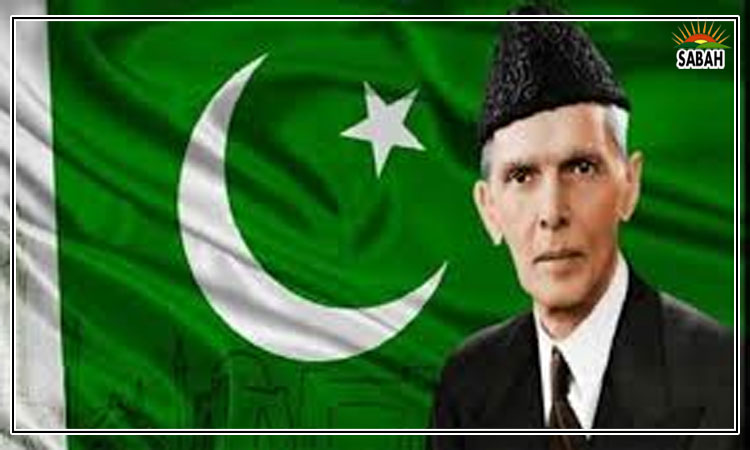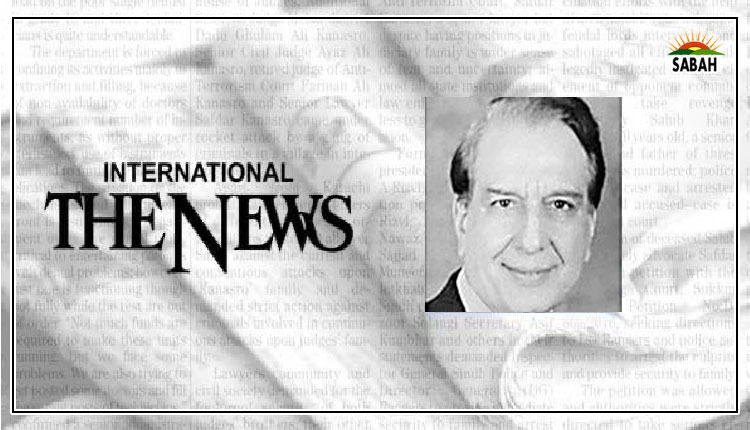Enlightenment at home…By Syed Mohibullah Shah
Enlightenment represents a collection of ideas that transformed a poor, medieval Europe into a rich, modern, and powerful continent. It liberated people’s minds from the oppressive grip of the state and clergy, which had held sway over them for centuries. This newfound freedom unleashed their creativity, sparking two powerful movements that have since driven the world: Democracy and the Industrial Revolution.
Our indigenous thinkers and philosophers advanced similar ideas, but their wisdom has often gone unheard, as our colonised minds are conditioned to accept such insights only when validated by colonial or foreign approval, past or present. Before we undertake a comparative analysis of Shah Latif’s Enlightenment ideas to show their similarities with those advanced by Locke, Rousseau, Montesquieu, and Newton – the leading lights of European Enlightenment – it is essential to lay out three factors to provide proper context.
One, there is a reason why Shah Latif and these European philosophers were advancing similar ideas of social change even though living 5000 miles away from each other, with no means of communications. India and Europe of the 16th and 17th centuries were in the same social and political mess of medieval society. Also, Shah Latif, unlike many other poets in the Subcontinent, was not attached to the court of any ruler, nor was he living on their stipends or under their obligation. Nor were these European philosophers. They lived independent lives among people which gave them a deeper understanding of the causes and cures for the people’s problems-including changing the anti-people rulers! That is why independent minds confronting same challenges came up with same solutions, even though living in two continents.
Two, it is important to note that these European philosophers lived in a society that had used printing press for over 200 years, spreading knowledge and inculcating reading and writing habits among people. Consequently, prose was the principle medium of communication of their enlightenment ideas.
Shah Latif lived during the Subcontinent’s Age of Darkness. In the largely illiterate society of 17th and early 18th century India, there was no printing press to foster a culture of reading and writing. Few scribes (kaatibs) existed, and the rare manuscripts were closely guarded by their owners. Poetry, therefore, became the primary medium for social scientists and reformers like Shah Latif to communicate their reformist messages in a way that people could commit to memory.
Third, aside from the use of different media – prose or poetry – another distinction lies in cultural variations of language. While expressing similar ideas, European languages and Subcontinental languages like Sindhi carry different cultural contexts, which must be considered in comparisons.
However, while poetry proved effective, it also posed a disadvantage. Many have turned Shah Latif’s poetry into a form of entertainment, diverting attention from his reformist intent, despite his caution: “My verses are not for entertainment but a roadmap to guide you to your destination.”
That said, let us now turn to our topic. Three major factors ushered in the Enlightenment in Europe: Protestant Ethics, the Social Contract and the Spirit of Inquiry. And we will see that the same ideas are also highlighted in the verses of our poet-reformer as he talks about empowerment of people and enlightenment of society.
Max Weber calls Protestant Ethics the big initiator of social change by highlighting the importance of hard work, frugality and respect for time and which played crucial role in the rise of modern capitalism. And Shah Latif repeatedly calls for people to work hard and shun laziness. In his poetic words: “sutta uthee jaag….. sultani suhag nindroon kande na miley” (Get up! don’t waste time sleeping away; that is no way to acquire wealth and power which can be yours otherwise).
The Social Contract was best defined by John Locke as abolishing any hereditary and divine right of anyone to rule over people. It made legitimacy to rule dependent upon the consent of the people. This led to democracy and accountable governance with Locke and Rousseau highlighting the right of people to change their rulers, if they did not work for their wellbeing.
Shah Latif’s Social Contract in his own poetic words – where he highlights the same principles of legitimacy, accountable governance and the right of people to change hypocritical rulers – is: “Munh ta Moosa jahro andar mein Iblees……..” (On the outside these rulers appear innocent like (Prophet) Musa but they are devil incarnate in reality; such useless rascals should be removed from power). Nothing can explain the European concept of the Social Contract in our indigenous culture better than these verses.
The Spirit of Inquiry and curiosity is best associated with Isaac Newton. He is a leading example of the critical importance of curiosity and acquiring knowledge to know the unknown. His curiosity about a falling apple led to the discovery of the laws of gravity, ultimately leading to man landing on the moon.
The quest for knowledge, the culture of questioning the status quo and acquiring excellence to solve problems appears repeatedly in Shah Latif’s verses. “Knowledge is light”, he says. An illiterate is like a blind person who doesn’t know even if the solution to his problems is lying in front of him.
Shah Latif captures the contrast between knowledge and ignorance in this iconic verse: “Learn to distinguish between flickering light of a night lamp and the shining rays of the rising sun”. He highlights curiosity as the key that opens the doors to the unknown in another verse: “Puchhan se passan agan ajeeban ja” (Those who ask questions will uncover the secrets of the unknown). We see in him the same spirit of inquiry and curiosity as was in Newton. The only difference is that our poet-reformer was living in the dark age of ignorance, and his enlightened views went unheeded.
And he laments the illiteracy and ignorance of the people of Sindh in his inimitable words: “Mahroom ee maree waya, maher thee na moa” (They died as illiterate as they were born, never acquired excellence) and never realised that knowledge is light and power and the best way to solve their problems.
All these enlightenment ideas were present in the powerful poetry of Shah Latif at about the same time in the 17th and 18th centuries as European enlightenment was transforming society there. But, even after the advent of the printing press and literacy, these ideas remained blocked from reaching people for fear that an empowered people and enlightened society would change the medieval era power structure – which continues in Sindh, as also in the rest of Pakistan.
Ideas precede actions. Pity the colonised mind that refuses to learn from indigenous ideas of enlightenment.
Courtesy












